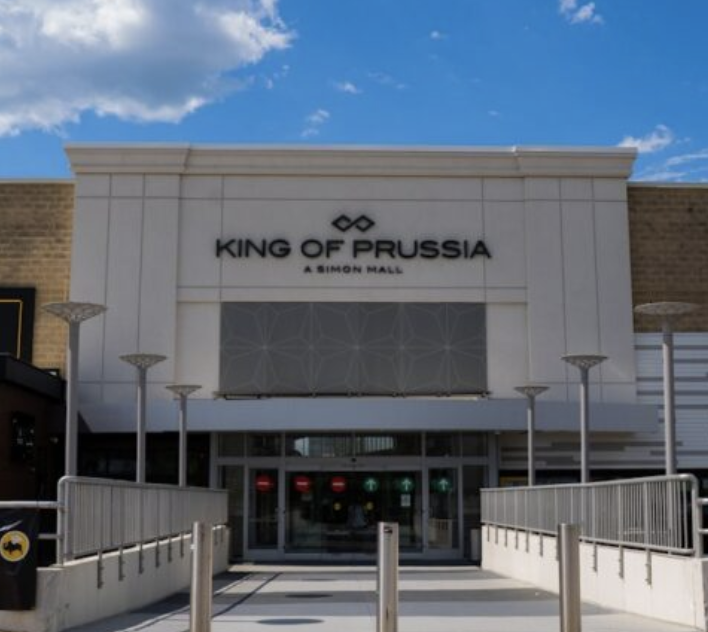The arrest of the suspected ringleader of a Delaware Valley theft crew targeting high-end retailers is just the latest example of organized retail crime coming to southeastern Pennsylvania.
Philadelphia police said Janiyah Robinson and Ayonna Robinson, who are not related, stole more than $75,000 in merchandise from Luluemon and Givenchy stores, mostly in the King of Prussia Mall. Other thefts were reported in Philadelphia, Ardmore, and Upper Merion dating back to November 2023.
Janiyah Robinson is believed to be the ringleader of the group. Police said the 19-year-old mostly recruited high schoolers to commit the crimes.
At least one nine-year-old is believed to be involved in two robberies.

“They would park in front of the Lululemon in Philadelphia, enter the store with trash bags or large bags, and take off,” said Philadelphia Police Inspector Raymond Evers.
It took the suspects two minutes to rob the stores. Investigators said the items would then be sold online or at two local bars.
While $75,000 sounds like a lot, it’s just a drop in the bucket of the organized retail crime surge that has hit retailers from coast to coast and across the Keystone State, retailers and law enforcement sources says.
“Unfortunately, the crimes committed by the organized retail theft ring busted have become far too a common occurrence the last few years for retailers in the commonwealth,” Pennsylvania Retailers Association Executive Director John Holub told DVJournal.
The National Retail Foundation says organized retail crime cost American businesses $112.1 billion in losses in 2022. And while many shrug it off as shoplifting teens, in fact it’s often gang-related, with the profits going to the same criminal organizations involved in dealing fentanyl and human trafficking.
“Criminals engaged in organized retail crime use those profits to bolster their operations, which brings additional crime to our neighborhoods, and facilitates the recruitment of vulnerable citizens,” Alysa Erichs, USA-IT spokesperson and former Acting Executive Associate Director for Homeland Security Investigations (HSI), told DVJournal.
Erichs said organized retail crime should not be considered a ‘victimless crime’ because retailers have been forced to shut down stores, cut jobs, and raise prices. Earlier this year, Macy’s announced it was closing its flagship store in San Francisco by 2026 due to the proliferation of robbers. The closure would cost 400 people their jobs.
Locally, the Philadelphia District Attorney’s Office said retail thefts skyrocketed during the COVID pandemic, going from around 7,800 in 2020 to nearly 13,000 in 2022. A Forbes survey from last December found the average value of stolen goods in Pennsylvania was $430. That’s the highest in the nation.
A Retail Industry Leaders Association study on organized crime said Pennsylvania had more than $5 billion in retail thefts in 2022. Only California had a higher dollar amount.
While most people may associate the thefts with clothing and electronics stores inside malls, that’s not the case.
“If you have a crime ring that’s 50 or 100 people who are targeting dozens of stores, the numbers add up quickly,” Pennsylvania Food Merchants Association President and CEO Alex Baloga told DVJournal. “[Thieves] looking for high-ticket items like meats or diapers or formulas or energy drinks and tobacco products that are typically sold in grocery and convenience stores, it can add up.”
Retailers are responding by increasing security measures beyond locking merchandise behind plastic displays. TJ Maxx, Marshalls, and HomeGoods launched a program last month that put body cameras on some loss prevention associates in some locations. Other retailers may do the same.
Pennsylvania retail groups said prosecutors and police have become important partners in stopping organized retail theft.
Both Baloga and Holub credited Philadelphia police and the District Attorney’s Office Organized Retail Theft Task Force with cracking down on organized rings.
Pennsylvania’s state government will also get involved. A state Office of Deputy Attorney General for Organized Retail Crime will open at the end of this month to provide additional resources throughout the state.
“We’ve got a lot of great partners and we’re proud of the work that’s being done. There’s more to do, but I think we’re making headway,” said Baloga.

